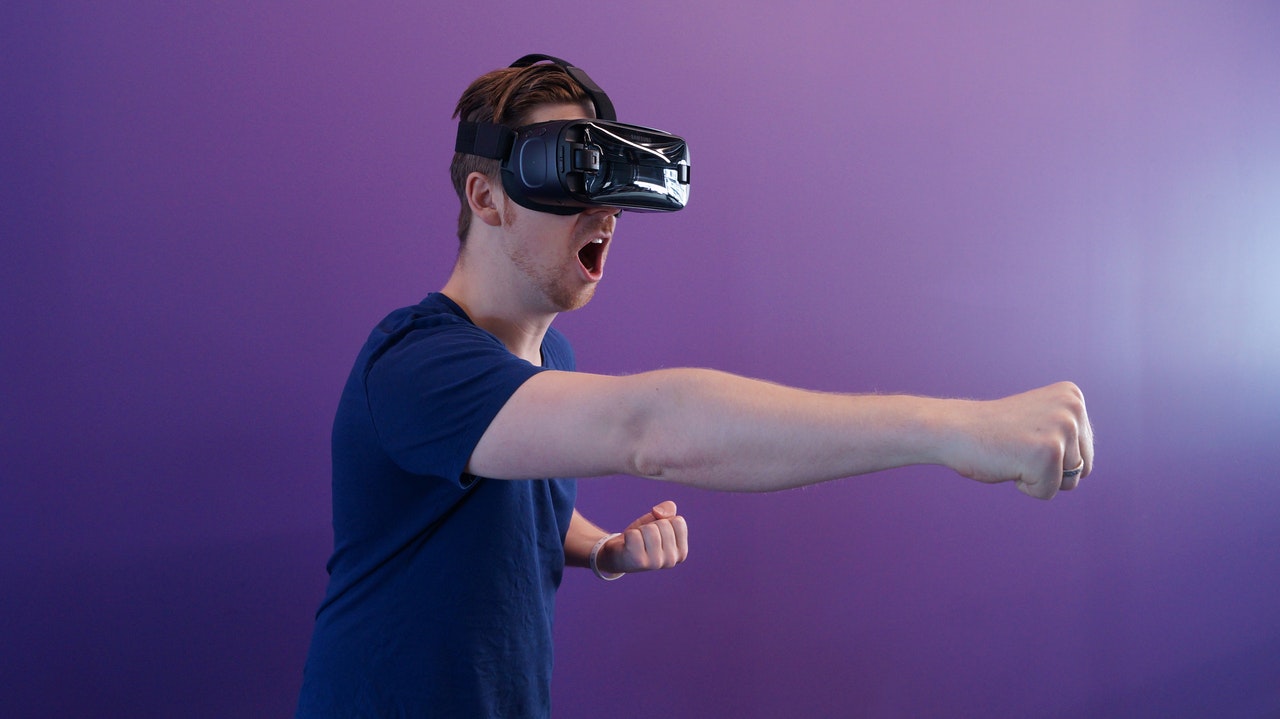The realm of science fiction holds boundless potential for expanding learning horizons and deepening understanding. Despite ongoing debates on its practicality, the genre offers a captivating avenue for engaging scientists, students, and adults alike. How can we harness its allure to enrich education and support learners? In what ways might science fiction enhance e-learning systems?
Science fiction serves as a potent wellspring of inspiration for e-learning endeavours. In this journal entry, our colleague Petra Takács delves into the fusion of fantasy and technology, showcasing how we can extract fresh ideas from this rich tapestry and seamlessly integrate them into our curriculum. Join us as we unlock the transformative power of science fiction in education!
It’s All About the Future
In the aftermath of World War II, a visionary British officer shared a groundbreaking concept with the world in 1945, through an article in Wireless World. His idea involved launching satellites into space, enabling global wireless communication – an innovation that now parallels our everyday use of phones. Fast forward to 1974, the same forward-thinking individual discussed the evolution of computing and remarkably foresaw what we now recognize as the internet, predicting its existence by the year 2001.
This remarkable visionary, science fiction writer Arthur C. Clarke, is best known as the author of “2001: A Space Odyssey.”
Science fiction is synonymous with the future – a realm of pure fantasy unfolding on screens or within the pages of books. Yet, remarkably, many of these fantastical concepts swiftly transition into our reality. Just a few decades ago, the notion of controlling screens with our fingertips or engaging in live video calls seemed inconceivable. However, Steven Spielberg prophetically explored these ideas in his 2002 sci-fi film Minority Report, foreshadowing the advent of touchscreen phones and live video applications like Skype.
Storytelling as a Form of Learning
Storytelling is a vital component in science fiction films, and its significance extends to the realm of e-learning. A story is a powerful tool for explaining complex subjects, rendering them more accessible to learners. Not only does it help skill acquisition, but it also fosters motivation for continued learning.
At the heart of every compelling science fiction tale lies a simple yet profound “what if” question:
What if we lived in space?
What if we could travel through time?
What if we were immortal?
No matter how impressive the special effects or visuals are in a film, without a compelling story, it holds little value. The same principle applies to e-learning.
The “what if” questions serve as a golden opportunity to break free from conventional thinking and craft something innovative. Through case-based scenarios, we not only learn new concepts but also have the chance to unlearn and override old habits, fostering a more dynamic and impactful learning experience.

The Curriculum Development Process
Curious about the production of teaching materials? A product of our research, the five-cycle model, is based on alternating creative and research processes and continuous feedback.
Read more!Identify a Complication for Students to Solve
The “what if” questions lead not only to ideas but also to complications:
What if living in space brings encountering hostile life forms?
What if time travel was possible, but doing so would mess-up space-time?
What if we were immortal but our population kept growing?
The problems are visible and easy to identify in films, but this is not always the case in e-learning. In a learning material there is usually a lot of information given to a learner, but how these resources are used is not always clear. Before we overwhelm learners with information, we should always identify for them why they need to learn it – if we define the problem for them, they can solve it more easily.

Overcoming the Obstacles
While test-based assessments are common, they may not always be the most effective. It’s crucial to incorporate a variety of question formats into the curriculum, including problem-solving and open-ended questions. This approach encourages critical thinking, prompts students to research and reflect, and ultimately fosters a deeper understanding of the subject matter.
In science fiction stories, characters frequently encounter daunting challenges that they must overcome to survive:
We must defeat the aliens!
We must fix space-time!
We must save our planet!
Engage and inspire learners by injecting a bit of challenge into our teaching materials! Set up missions for students to tackle brain-teasing puzzles, toss them into the mix of conflicting answers. Occasionally, there might not be a crystal-clear solution; it’s about unveiling the idea that there’s not always a perfect or wrong answer, just varying degrees of better ones. Illuminate the distinctions for the students!
However, it’s crucial to remember that a challenge is truly valuable when it’s surmountable. Let’s empower our students to become mini-heroes in their own learning journeys.
Super Technologies
Science fiction serves as the playground for the boldest and most breathtaking technologies. In the realm of movies, we’re treated to faster-than-light spaceships, lightsabers, holograms, and time machines. Surprisingly, much of this futuristic tech is not confined to the big screen but is weaving its way into our everyday lives, including e-learning.
One area where this is evident is in the increasing integration of virtual and augmented reality into education. As per a report from the international expert group, The New Media Consortium, wearable technologies like Windows HoloLens are predicted to become standard in schools in just a few years, completely transforming the landscape of learning and teaching. Here are some notable examples:
- Windows HoloLens – holographic, user accuracy and performance enhancing tool
- Myo – an arm-worn gesture recognition device
- MUV interactive BIRD – finger-wearable digital control device
- VR – 360-degree video in virtual reality puts the learner directly into the content, so the brain feels like it is actually experiencing the learning


Shaping the Future: AI in Education
What’s the role of artificial intelligence in education? What self-directed, AI-based options are available in e-learning today? In this Journal entry, our colleague Petra Takács explores practical examples to demonstrate that the future of education is already here.
Read More!End of the Story
At the end of science fiction stories, after the complications have been resolved, it’s time for rewards and consequences – don’t forget to let your students know that they have succeeded in learning the material! Provide them with a badge, certificate or level so they can be proud of the work they have done!

The author of this Journal entry is Petra Takács, curriculum developer at Klippe, researcher of innovative educational methodologies and technologies.
You Need Help?
If you would like to embrace storytelling in your learning solution, but wonder whether it is worth starting, contact us and we will help you choose the best solution. Don’t hesitate, even if resources are limited, as expert assistance can lead to significant savings in both time and costs!
If you found this article useful, follow us on Facebook or LinkedIn, to keep up with the latest articles!
Details below will help you contact us via form, phone or e-mail. ⬇️
Who Are We?
We are digital education experts and software developers, following trends and offering innovative solutions in our learning materials and systems. We have been providing digital training, creating complex e-learning materials and implementing systems for X years.
Klippe Learning’s team will create the digital teaching and learning solution you’ve been dreaming of – or we’ll dream it for you if you don’t know exactly what you need. Custom content, creative and motivating methods, a platform tailored to you.
How Can You Reach Us?
To find out more about our bespoke learning materials, e-learning systems, training courses or to request a quote, please contact us:
 contact us via the form on the right!
contact us via the form on the right!
 or call us:
or call us:
 or send an email:
or send an email:



